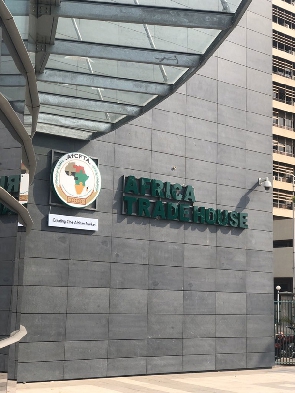Director of Research at the Institute of Economic Affairs (IEA), has said Ghana cannot solely rely on a free market of the yet-to-be implemented African Continental Free Trade Area (AFCTFA), to drive industrilisation.
According to Dr. John Kwakye, Ghana’s industrilisation drive must be state-driven and goal-oriented following the curtailment of Dr. Kwame Nkrumah’s state led industrilisation strategies and the subsequent privatization of most of his industries.
Speaking at a press briefing in Accra on Tuesday July 28, the economist said; “We cannot rely on the free market and private enterprise to drive our industrialisation, at least not in the initial stages of the AFCFTA.”
“We the [IEA] do not suggest that the private sector should be ignored either in the process of industrialisation but the sector can play a supplementary role. In particular, we believe that small and informal sector industries should be nurtured and supported to grow and flourish”
Another economist, Prof. Godfred Bopkin on his part, has advised government to strategise its competitive market response following the postponement of the AfCFTA implementation.
The Professor of Finance said even though the initial implementation date of the AfCFTA has been deferred to January 2021, Ghana is required to strengthen its private sector to compensate any impending losses that may come from hosting the AfCFTA.
“Though Ghana is hosting the AFCFTA secretariat, it does not mean that we will be hosting the gains that come with the agreement,” he earlier cautioned in an interview with GhanaWeb.
The African Continental Free Trade Area (AfCFTA) Secretariat is now targeting January 2021 for the commencement of the implementation of the pan-African free trade agreement following its postponement due to the outbreak of the Coronavirus pandemic.
According to the AfCFTA Secretary-General, Wamkele Mene, it is imperative for member countries to conclude negotiations on trade tariffs and other protocols under the AfCFTA within the next six months.
The continental free-trade area would be the world’s largest economic free trade zone, adjudged by spatial size and population, and is expected to increase intra-African trade from the current 12 percent of total trade by African countries to 52 percent by 2023.
Business News of Wednesday, 29 July 2020
Source: www.ghanaweb.com
Ghana cannot rely on a free market alone for industrialisation - Dr John Kwakye
Entertainment












